Sudan
The ongoing war is Sudan has crippled the country's health system.
Seven-year-old Mohammed is homeless. He began showing symptoms of an enlarged spleen and severe anaemia at the age of two.
The hospital in Khartoum where the boy used to receive care was destroyed in the conflict and his family fled for safety to Port-Sudan which has remained relatively safety and has better medical conditions.
“The conflict has forced us to leave our hometown and become displaced. We arrived here in Port Sudan some 20 days ago to seek treatment for my son. He needs blood transfusions and treatment every six months,” Mohammed's father Bashir, says.
Mohammed is still unable to be admitted to any hospital due to lack of beds.
Even for those who are lucky to receive medical consultation, the lack of medicines has been an issue.
“Around 80 percent of the country’s medical institutions have stopped services. We’re facing a sharp increase in demand for medical services, and we’re facing a huge challenge in terms of our drug reserves and technical capabilities,” Ahlam Abdel Rasoul, the minister of health of the Red Sea State where Port-Sudan is located says.
Antibiotics, painkillers, oxygen, and blood in particular have been depleted in most hospitals.
According to the World Health Organization, around 15 million Sudanese have been left in need of urgent health assistance.
So far, 14,790 fatalities have been recorded in Sudan, while the number of people displaced has reached 8.2 million, according to the latest report by the United Nations Office for the Coordination of Humanitarian Affairs.




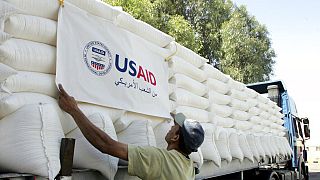
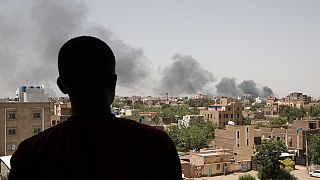

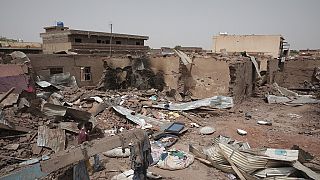
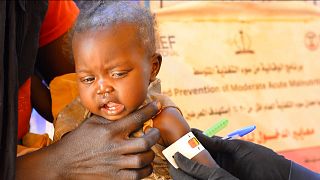
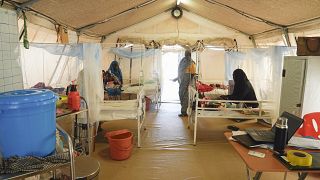
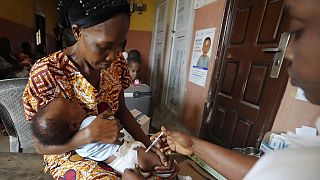

01:00
No more free medication for Argentine pensioners
01:52
Aid groups call for more support for Sudanese refugees living in Chad
01:28
Taking into account human rights is key in ending AIDS- UN report
01:35
US Envoy: No political will to end Sudan's war
01:38
Top Investigator: "War is being fought on the bodies of women in Sudan"
01:45
They fled war, now female Sudanese refugees say they’re being forced to have sex to survive